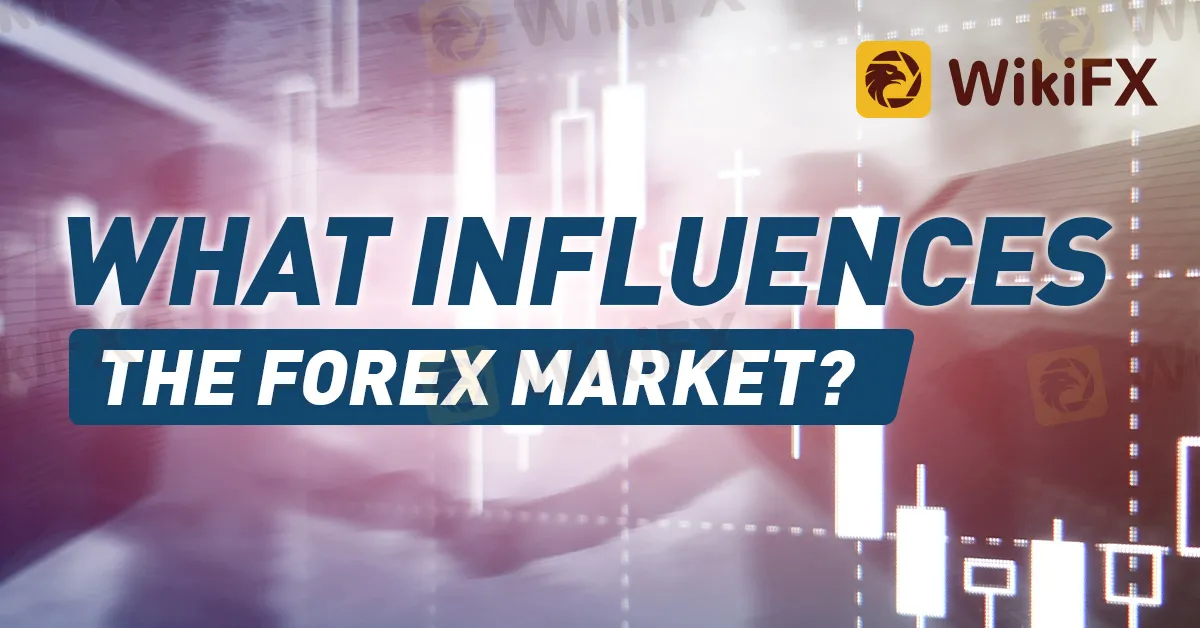Abstract:The forex market is impacted by a number of external variables. These variables include manufacturing, GDP, unemployment, trade abroad, and trade statistics.

The forex market is impacted by a number of external variables. These variables include manufacturing, GDP, unemployment, trade abroad, and trade statistics. The value of a nation's currency is impacted by the rise or drop in these variables. As it's only open five days a week, the weekend is when it closes. Even though the foreign exchange market is the most liquid of all markets and trades around-the-clock, the time of day can directly affect the liquidity available for trading a particular currency.
In forex trading, you are not unaware of the news affecting a stock's liquidity the way someone who holds shares for a long time would be. One of the most crucial methods for determining a country's relative economic health is its foreign exchange rate. Keep a close eye on currency exchange rates if you're planning to send or receive money from abroad.
The definition of the exchange rate is “the rate at which the money of one country may be converted into that of another.” With the shifting market forces of supply and demand of currencies from one country to another, it could vary daily. For these reasons, it's crucial to comprehend how exchange rates are set when sending or receiving money internationally. The value of currencies fluctuates often. A dollar of AUD was worth $0.90 USD five years ago. It is now valued at $0.66 USD. Factors that influence its performance, so this is not completely random. In this article, we look at the major variables that affect currency value.
TRENDS AND LEVELS OF INFLATION
The value of a nation's currency and, as a result, the exchange rates of other countries can be significantly impacted by that country's rate of inflation. A country's currency will typically appreciate because of the rise in purchasing power that comes with having an inflation rate that is lower than that of its trading partners, and the opposite is true as well.
Because of the anticipation that the central bank will increase short-term interest rates to battle increasing inflation, a currency often strengthens when inflation increases.
GOVERNMENT BUDGET SURPLUSES AND SHORTFALLS
This is the difference between what the government collects and what it spends on economic activity. For a currency, a budget deficit is viewed negatively (as the Government would be expected to print more money to balance the books causing depreciation in the value of the currency) The balance of commerce and income from foreign investments are both reflected in a country's current account. It comprises of the overall volume of transactions, such as debt, exports, and imports. Depreciation results from a current account deficit, which occurs when a country spends more of its currency on importing goods than it does on selling its exports. The local currency's exchange rate varies due to the balance of payments.
LEVELS AND TRENDS IN THE BALANCE OF TRADE
By its balance of commerce, a nation will take into consideration the demand for commodities and services from other nations. A country will be a “net-importer” if it imports more products and services from other nations than it exports. In order to settle trading balances, it will thereafter be purchasing more currency from the target nation.
A popular variation of the effective exchange rate index is the trade-weighted effective exchange rate index (TWI), which is a multilateral exchange rate index. It is calculated as a weighted average of home currency exchange rates against foreign currency exchange rates, with each foreign country's weight being equal to its trade share.
An economy is said to have a “trade surplus” when exports exceed imports, which increases the stability of that economy. As foreigners buy the currency to pay for items that are exported, the value of the currency increases.
On the other side, an economy has a “trade deficit” when imports are higher than exports. To pay for the imported commodities, the nation must sell its own currency, which lowers the value of the national currency.
RATES OF INTEREST
Currency value and the dollar exchange rate are impacted by changes in interest rates. Inflation, interest rates, and foreign exchange rates are all related. A country's currency gains value in response to increases in interest rates because higher interest rates provide lenders higher rates, which draws in more foreign capital and raises exchange rates. In contrast, if rates are lowered, profit prospects are reduced and the currency is viewed as being less valuable, which prompts people to try to sell it off. The price of the currency decreases as demand declines. The forex market consistently has a strong emphasis on this. Investors and other market participants are primarily focused on the central banks because they have the authority to regulate monetary policy and supply.
CONCLUSION
Economic factors that affect the strength and value of a country's currency eventually drive the forex market. The value of a nation's currency is mainly influenced by its economic prospects. You can keep up in the competitive and quickly changing world of forex by being aware of the important aspects and indicators.










